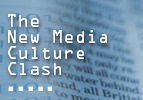



For the purposes of this analysis, I transcribed full interviews for two consultants (Consultant A/Beth and Consultant B/Hannah) and nearly 20 minutes of an interview with a third (Consultant C/Erin). The audio files for these interviews are available online.
In the interviews with consultants A and C, a cluster of keywords appeared — “fear,” “afraid,” “worried,” and “anxiety”— when reviewing their responses about composing new media projects. I then applied Claudia Strauss’ criteria for evaluating a consultant’s PSN (2005) to the relevant conversational tokens. Sheer repetition (frequent use of the keyword “afraid” six times and the related keyword “fear” five times) would seem to closely link the process of new media composition with these feelings. As further evidence of this linkage, the consultants’ “voices” are consistent throughout the relevant passages. Their sentence structure is similar in each response and each token is lengthy spanning multiple sentences or paragraphs.
Additionally, the emotional tone is analogous throughout. In each of the three responses for Consultant C, she laughs in a manner somewhere between nervous relief and collegial commiseration. Similarly, Consultant A maintains a consistent emotional tone — although it is one of anger or frustration. These associations are clearly self relevant as each consultant explains during her interview.
In discussing these feelings of anxiety, Consultant C notes that she fears not getting her point across (C25), fears not earning a satisfactory grade (C25, 33), fears disappointing a professor (C28), fears not meeting the standards of the class (C28), fears how the assignment would be assessed (C33), and fears the time required to complete a new media project (C33). The strongest of these associations center on grading/assessment and on failing to meet the standards of a professor/class. In a similar vein, Consultant A notes that she fears not having the technical skills to create a desired element (A19) in a new media composition and finds ridiculous that she might have to worry about a grade on such a composition (A22). In addition, Consultant A’s emotional responses of anger and frustration are closely linked with the time available to complete new media compositions (A14, A15, A19, A33, A35, A36).
These linkages between keywords and emotional responses provide valuable insight as to what factors impact a graduate student’s decision to compose in digital media.
Developing genre & reluctant culture • Personal Semantic Networks • Interview findings • Works cited • Home